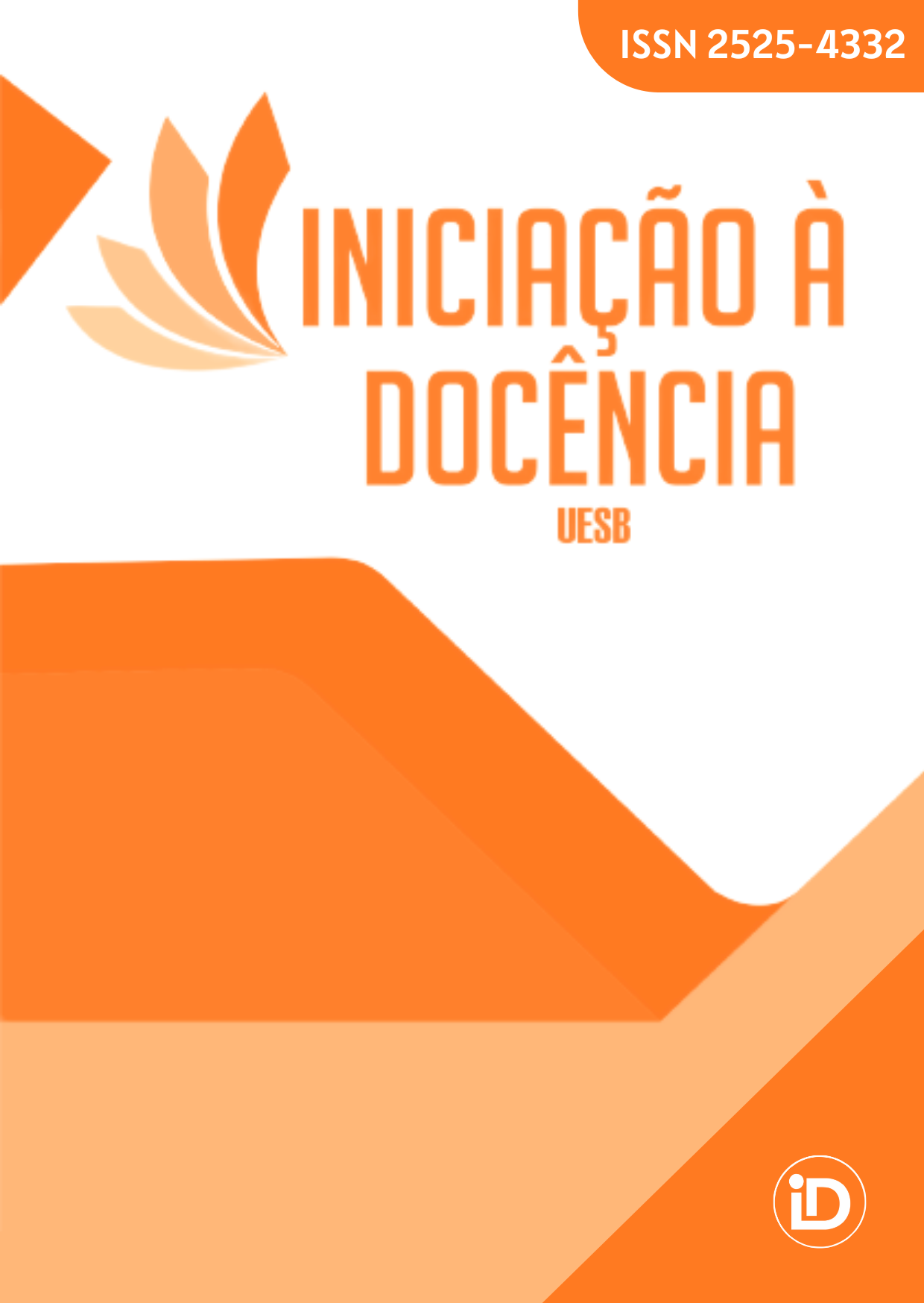The critical pedagogy of Paulo Freire in the constitution of the professional identity of a Physics teacher educator in a culture of peace, solidarity and social transformation
DOI:
https://doi.org/10.22481/riduesb.v8i1.11729Keywords:
Critical Pedagogy, Paulo Freire, Physics Teacher Training, Critical Friend, Discourse Analysis, Social TransformationAbstract
In Brazil there is an important number of investigations that aim to understand the practices, discourses and conceptions of teachers’ educators. This is necessary because they play a fundamental role in initial and continuing education, as well as in the promotion of policies, models, and programs for teachers. Thus, this article aims to analyze the role of Paulo Freire's critical pedagogy in the constitution of the identity of a future educator of physics teachers in a culture of peace, solidarity, transformation, and social justice from the dialogue between "critical friends" and re-signifying the term in the Freirian dialogical-problematizing perspective. The research was carried out through an interview. The theoretical and methodological contributions that supported the development of the research were the Pecheutian Discourse Analysis and the references of the teacher education field. From the data analysis it was possible to understand that the training of the future teacher trainer is inscribed in hope and love as an understanding of the other, as attentive listening and struggle for social transformation. Moreover, we conclude that critical friends are constituted in listening and solidarity, because the trainer, according to Freire (2020), needs to learn to listen, stimulate speech and manage silence.
Downloads
References
ABELL, K. S. et al. Preparing the next generation of science teacher educators: A model for developing PCK for teaching science teachers. Journal of Science Teacher Education, v. 20, n. 1, p. 77–93, 2009.
AZAM, S.; GOODNOUGH, K. Learning together about culturally relevant science teacher education: Indigenizing science methods course International. Journal of Innovation in Science and Mathematics Education, v. 26, n. 2, p. 74–88, 2018.
BELÍSSIMO, J. R. Um estudo longitudinal sobre o imaginário de licenciando(a)s em Física: pensando a identidade profissional docente. 150 f. Dissertação (Mestrado em Educação para a Ciência) – Faculdade de Ciências, Universidade Estadual Paulista, Bauru, 2021.
BERRY, A.; VAN DRIEL, J. H. Teaching about Teaching Science: Aims, Strategies, and Backgrounds of Science Teacher Educators. Journal of Science Teacher Education, v. 64, n. 2, p. 117–28, 2013.
BRANDÃO, H. H. N. Introdução à análise do discurso. 3. ed. rev. Campinas: Editora Unicamp, 2017
CALIXTO, V. S.; KIOURANIS, N. M. M.; VIEIRA, R. M. Prática como componente curricular: horizontes de compreensão dos formadores de professores de Química. Investigações em Ensino de Ciências, v. 24, n. 2, p. 181-199, 2019.
CONTRERAS, J. A autonomia de professores. São Paulo: Cortez, 2002.
CORTELA, B. S.; NARDI, R. Formadores de professores de Física: uma análise de seus discursos e como podem influenciar na implantação de novos currículos. Tecné, Episteme y Didaxis: TED, [S. l], n. 16, 2004.
COSTA, A. L.; KALLICK, B. Through the lens of a critical friend. Educational leadership, v. 51, n. 2, p. 49-51, 1993.
COSTA, F. R. S.; LORENCINI, JÚNIOR, A.; FREIRET, L. I. F. A trajetória dos agentes sociais no ensino superior do estado do Paraná. Revista Internacional de Educação Superior, v.17, p. 1-18, 2021.
DONOHUE, K.; BUCK, G. A.; AKERSON, V. Where’s the science? Exploring a new science teacher educator’s theoretical and practical understanding of scientific inquiry. International Journal of Research in Education and Science, v. 6, n. 1, p. 1–13, 2020.
FLICK, U. Introdução à metodologia de pesquisa: um guia para iniciantes. Porto Alegre: Penso, 2013.
FRANZAK, J. K. Developing a teacher identity: The impact of critical friends practice on the student teacher. English education, v. 34, n. 4, p. 258-280, 2002.
FRASER, W. J. Science teacher educators’ engagement with Pedagogical Content Knowledge and scientific inquiry in predominantly paper-based distance learning programs Turkish. Online Journal of Distance Education. v. 18, n. 4, p. 35–51, 2017.
FREIRE, P. Pedagogia da Autonomia: saberes necessários à prática educativa. 63. ed. São Paulo: Paz e Terra, 2020.
FREIRE, P. Pedagogia do Oprimido. 71. ed. São Paulo: Paz e Terra, 2019.
GIROUX, H. A. Os professores como intelectuais: ruma a uma pedagogia crítica da aprendizagem. Porto Alegre: Artes Médicas, 1997.
HABERMAS, J. Teoria de la Acción Comunicativa, v. 2. Madrid: Taurus,1987.
MIZUKAMI, M. D. G. N. Aprendizagem da docência: professores formadores. Revista E-curriculum, v. 1, n. 1, p. 1-17, 2005.
ORLANDI, E. P. Análise de Discurso: Princípios & Procedimentos. 12. ed. Campinas: Pontes, 2015.
PIMENTA, S. G. Professor reflexivo: construindo uma crítica. In: PIMENTA, S. G.; GHEDIN, E. (org.). Professor reflexivo no Brasil: gênese e crítica de um conceito. 7. ed. São Paulo: Cortez, 2012.
SACRISTAN, J. G.; GÓMEZ, A. I. P. Comprender y transformar la enseñanza. Madrid: Ediciones Morata, 2009.
SCHIMPF-HERKEN, I. El modelo de formación de docentes inicial de la Universidad Humboldt de Berlín: Un nuevo concepto de didáctica multidiciplinar para la diversidad y la interculturalidad. In: CAMPOS, M. R.; KÖRNER, A. (org.). Modelos innovadores en la formación inicial docente: Una Apuesta por el cambio. Santiago: Oficina Regional de Educación de la Unesco, 2006.
SILVA-PEÑA, I. et al. Self-study como proceso de formación de formadores/as: reflexiones en medio del camino. Investigación para la formación de profesores, [S. I.], p. 115-136, 2017.
TERRAZAN, E. A. Inovação escolar e pesquisa sobre formação de professores. In: NARDI, R. A pesquisa em ensino de ciências no Brasil: alguns recortes. São Paulo: Escrituras, 2009.
VAILLANT, D. Formación inicial del profesorado en América Latina: dilemas centrales y perspectivas. Revista Española de Educación Comparada. v. o, n. 22, p. 185–206, 2013.
Downloads
Published
How to Cite
Issue
Section
License
Copyright (c) 2023 Revista de Iniciação à Docência

This work is licensed under a Creative Commons Attribution 4.0 International License.






